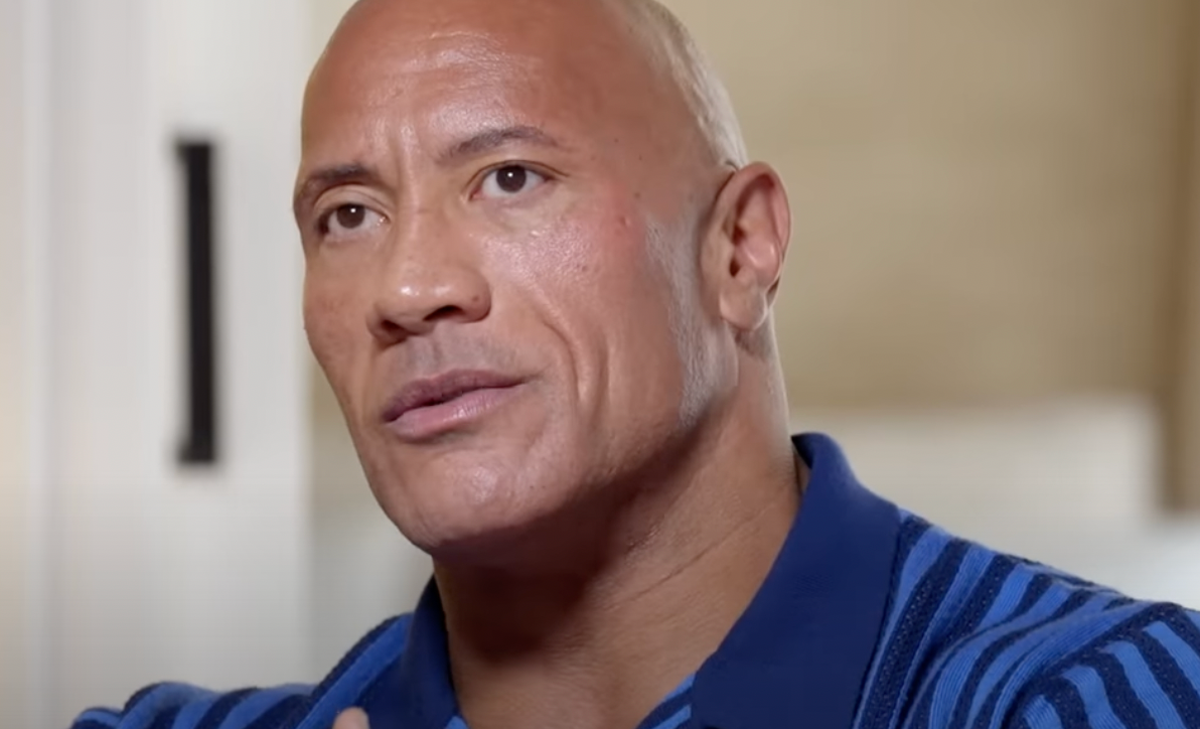
Dwayne Johnson has revealed that he’s struggled with depression at three different points throughout his life.
The former professional wrestler, often known by his ring name “The Rock”, spoke candidly about his mental health during a recent episode ofThe Pivot Podcast. He recalled how he first battled depression when his college football career came to an end, due to a shoulder injury he got while playing at the University of Miami.
“I’d gone through two, three bouts of depression over the course of years, and the football one for me was a big one,” he said, before noting that getting a complete reconstruction done on his shoulder sent him “in a tailspin”.
The actor went on to explain how his depression impacted his decision to leave college.
“My first bout of depression was down there in Miami. Didn’t want to go to school. I was ready to leave,” he said. “I left school. I didn’t take any midterms and I just left.”
However, Johnson said he didn’t realise he was struggling with depression at the time.
“I just didn’t know what it was. I didn’t know what mental health was,” he explained. “I didn’t know what depression was. I just knew I didn’t want to be there. Wasn’t going to any of the team meetings. Wasn’t participating in anything. I wasn’t working out.”
The Black Adam star briefly mentioned how he battled with depression for a second time when he got a divorce from ex-wife Dany Garcia.
“Years later, and went through it again when I got a divorce… Didn’t know what it was,” he added.
Johnson recalled that he had his third bout of depression in 2017. But at this point, he said, he knew what the mental health condition was and could reach out to his peers for help.
“[I] knew what it was at that time. And luckily, at that time, I had some friends who I could lean on and say, ‘You know, I’m feeling a little wobbly now. Got a little struggle happening. I’m seeing a little grey and not the blue,’” Johnson continued.
Throughout his mental health challenges, he acknowledged that his “saving graces” were his three children. Along with his 21-year-old daughter Ava, whom he shares with Garcia, Johnson has a seven-year-old, Jasmine, and five-year-old, Tia, with wife Lauren Hashian.
“The saving grace for me has really been my daughters, the three of them, and being a girl dad,” he explained on The Pivot Podcast. “Because you look at them, and you realise, ‘Well, I mean, really, this is what it’s all about.’”
Following the release of the podcast episode, Johnson shared a post on Instagram to express how he’s become more open about his depression over the years.
“I’ve worked hard over the years to gain the emotional tools to work thru any mental pain that may come to test me,” he wrote in the caption of his post, which featured a clip of his podcast appearance. “But years ago I didn’t know what mental health struggle was. As men, we didn’t talk about it. We just kept our head down and worked thru it. Not healthy but it’s all we knew.”
He went on to send a message to his fans about reaching out to their peers for help when they need it.
“If you’re going thru your own version of mental wellness turning into mental hell-ness, the most important thing you can do is talk to somebody,” he wrote. “It can’t be fixed if you keep that pain inside.”
Johnson concluded: “Having the courage to talk to someone is your superpower. I lost two friends to suicide. Talk to someone. Despite how you may feel, you’re never alone.”
Back in 2018, the actor also opened up about the mental health challenges that his family faced when he was a teenager. While filming a season of his TV series, Ballers, he took to Instagram to recall an incident where he saved his mother from a suicide attempt.
“My mom tried to check out when I was 15... What’s crazy about that suicide attempt is to this day, she has no recollection of it whatsoever.”
One month later, he spoke to Express about how this experience has a profound impact on his depression.
“Struggle and pain is real,” he said. “I was devastated and depressed. I reached a point where I didn’t want to do a thing or go anywhere. I was crying constantly.”
Johnson also confessed that if he didn’t work through his struggles with depression, he could have become suicidal like his mother.
“We both healed but we’ve always got to do our best to pay attention when other people are in pain,” he said. “We have to help them through it and remind them they are not alone.”
If you are experiencing feelings of distress and isolation, or are struggling to cope, the Samaritans offers support; you can speak to someone for free over the phone, in confidence, on 116 123 (UK and ROI), email jo@samaritans.org, or visit the Samaritans website to find details of your nearest branch.
If you are based in the US, and you or someone you know needs mental health assistance right now, call National Suicide Prevention Helpline on 1-800-273-TALK (8255). The Helpline is a free, confidential crisis hotline that is available to everyone 24 hours a day, seven days a week.
If you are in another country, you can go to www.befrienders.org to find a helpline near you.







